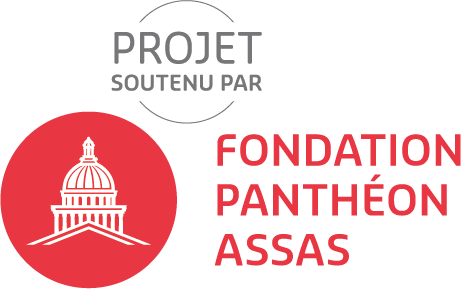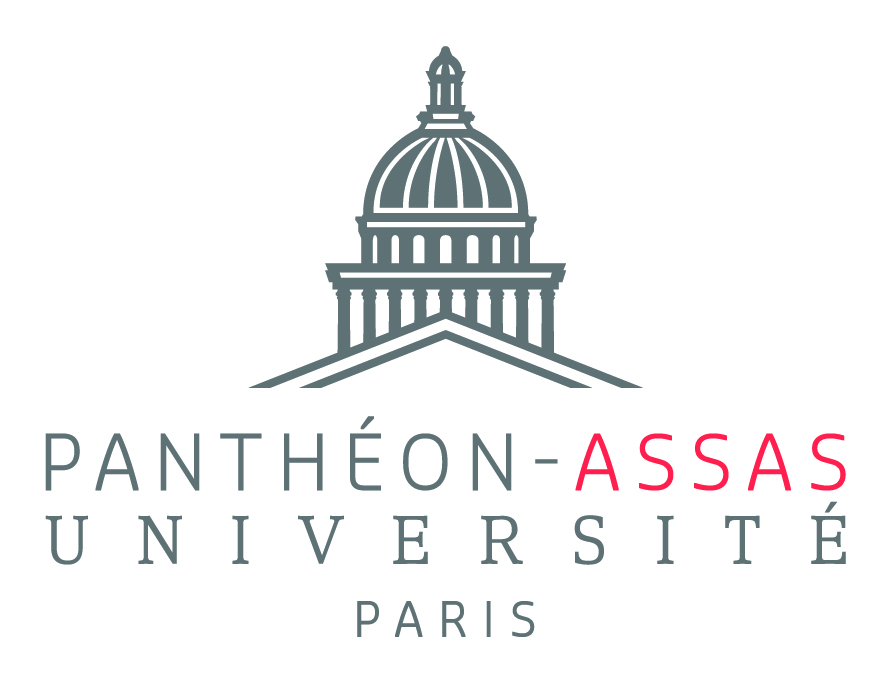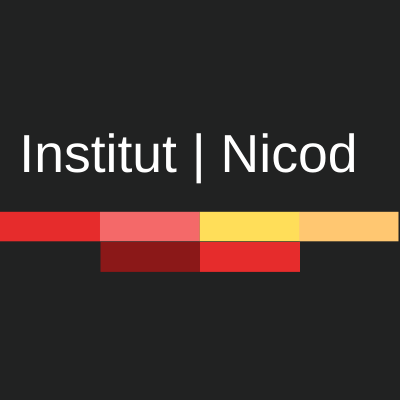Abstracts
Despoina Alempaki
(Warwick Buisiness School)
"Deceptive Communication: Direct Lies vs. Ignorance, Partial-Truth and Silence"
(joint with Valeria Burdea and Daniel Read)
Abstract: In cases of conflict of interest, people can lie directly about payoff relevant private information, or they can evade the truth without lying directly. We analyse this situation theoretically and test the key predictions in an experimental sender-receiver setting. We find senders prefer to deceive through evasion rather than direct lying. This is because they do nοt want to deceive others, and they do nοt want to be seen as deceptive. We also find receivers are highly sensitive to the language used to deceive, and are more likely to act in the sender’s favour when the sender lies directly.
Working paper
Gerrit Bauch (University of Bielefeld, Center for Mathematical Economics)
"Effects of Noise on the Grammar of Languages"
Abstract:
We study a signaling game of common interest in which a stochastic noise
is perturbing the communication between an informed sender and an uninformed receiver. Despite this inhibiting factor, efficient communication
is possible for any kind of noise and improves upon babbling unless the
noisy channel is uninformative. Endowing a compositional message space
with the Hamming distance, we explore the impact of a well-known noise
channel from information theory on the grammatical structure of efficient
communication. Under noise, relabeling of cells cannot be arbitrary, but
has to assign distant messages to the most distant states. The more noisy
the channel, the less frequent messages are used that describe states closer
to the pooling action. Efficient communication under noise can be learned
through the forces of evolution, but not every equilibrium is stable.
Working paper
Andreas Blume (University of Arizona, Eller College of Management)
"Language Games: Correlation through Non-Understanding,
Dialogue, Inarticulateness, and Misunderstanding"
Abstract:
A language game is a finite complete-information game preceded by
pre-play communication with explicit constraints on players’ ability
to produce and understand messages and on their knowledge of each
other’s constraints. Players communicate directly and publicly but
may not understand or may misunderstand each other’s messages.
The paper gives conditions under which it is possible to implement correlated equilibria outside the convex hull of the set of Nash equilibria through language games. These conditions can be satisfied in games with any numbers of players, including two. In the game of Chicken it is possible to induce the entire set of correlated equilibria
via a language game.
Working paper
Valeria Burdea (Ludwig-Maximilian University Munich)
"I'm Sorry If You Are: Two-Sided Conflicts and a Theory of Relative Blame"
(joint with Shereen J. Chaudhry)
Abstract:
Apologies are powerful tools for reconciliation, so understanding and addressing barriers to apologizing can enhance long-term cooperation. Existing research on apologies leaves critical blind-spots by focusing on one-sided conflicts, where only one person is in a position to apologize: We find that most recalled unresolved conflicts are two-sided, such that each person is in a position to apologize. Combining insights from existing research, we propose a theory of relative blame that parsimoniously explains behavior in two-sided conflicts and makes novel predictions. The main assumption is that in such conflicts people care not only about what they are apologizing for (absolute blame) but also how much responsibility they are taking for the conflict (relative blame). Further, people expect onlookers to make pragmatic inferences about relative blame based on the number of apologies offered: Apologizing alone signals the apologizer deserves all of the blame, whereas a return apology splits the blame. Because this presents a coordination problem, we use a game theoretic framework to analyze how preferences over the distribution of relative blame are expected to impact apologizing behavior. We test the theory’s predictions in eight studies (N = 1,264), substantiating behavioral patterns unique to two-sided conflicts, including that people are less likely to apologize for the exact same offense when they see the conflict as two- versus one-sided, that the decision to apologize first is influenced by perceptions of others’ knowledge states, and that people treat apologizing first as a risky choice. We discuss additional hypotheses and extensions to the theory.
Working paper
Daniele Condorelli (Warwick University, Department of Economics)
"Cheap Talking Algorithms"
(joint with Massimiliano Furlan)
Abstract:
We simulate behaviour of independent reinforcement learning algorithms playing the Crawford and Sobel (1982) game of strategic information transmission. We show that a sender and a receiver training together converge to strategies approximating the ex-ante optimal equilibrium of the game. Communication occurs to the largest extent predicted by Nash equilibrium. The conclusion is robust to alternative specifications of the learning hyperparameters and of the game. We discuss implications for theories of equilibrium selection in information transmission games, for work on emerging communication among algorithms in computer science, and for the economics of collusions in markets populated by artificially intelligent agents.
Working paper
Françoise Forges
(Dauphine University)
"Finite Sender-Receiver Games"
Abstract:
An informed player (with finitely many types) sends a message (from a finite set) to an uninformed player who chooses one of finitely many decisions. The players' utility only depends on the type and the decision (the message is cheap talk), but is otherwise arbitrary. What outcomes can be achieved? Various solution concepts are surveyed, from Nash equilibrium to Bayes correlated equilibrium, including communication equilibrium.
Luca Gasparri (CNRS, Laboratoire Savoirs, Textes, Languages, University of Lille)
"Natural Linguistic Conventions"
Abstract:
In recent years, multiple scholars have argued that conventions can be more or less "natural," offering, however, non-identical definitions of the notion of naturalness in play. How exactly are we supposed to interpret the idea of a "natural convention"? I will propose to distinguish two basic forms of conventional naturalness: a probabilistic form and an inherent form. A convention is probabilistically natural if it is likely to emerge in a population of agents, and inherently natural if its content is a regularity of behavior that scores high on relevant measures of internal naturalness. I will motivate the proposal on conceptual grounds, showcase its descriptive merits with two cases studies in language, and gesture at further potential applications of the framework.
Nicolas Rodriguez Gonzalez (University of Arizona, Eller College of Management)
"The Geometry of Thought in Common-Interest Cheap-Talk Games
"
Abstract:
This paper explores a multi-sender common-interest communication model. Senders are language-constrained and the state space is multidimensional, which makes full information transmission infeasible. Efficient communication allows the receiver to process information through convex sets provided that preferences satisfy a generalized single-crossing property. Furthermore, these convex sets can be characterized by a finite set of hyperplanes. This mode of information processing aligns with cognitive psychology literature, as working with convex sets imposes fewer cognitive burdens compared to dealing with mappings or arbitrarily shaped regions. The paper demonstrates that language heterogeneity becomes necessary to achieve efficiency when the receiver is sufficiently responsive to information. Finally, it establishes that efficient communication through languages with natural properties is generally unattainable, underscoring the tension between the strategic aspects of language formation and natural language properties.
Olivier Gossner
(CNRS, École Politechnique)
"Strategic Types: A Discrete Language for Higher-Order Interactive Decision Making"
Abstract:
While language is usually thought of as a discrete process, beliefs, as well as beliefs over beliefs, etc. are captured by higher and higher level continuous spaces. We show how, by focusing on player’s choices in a given game, all hierarchies of beliefs can be represented through a discrete model embedded into a finite automaton.
Michael Greinecker (École Normale Supérieure-Paris Saclay, Centre for Economics)
"Causality and Correlation in Game Theory and Science"
Abstract:
There has been controversy in game theory over whether a player's rational probabilistic assessment of the behavior of independently acting other players should allow for stochastic dependence. On the one hand, uncertainty over which rational assessment is appropriate leads naturally to mixtures of assessments and, thus, stochastic dependence. Conversely, statistical work frequently uses a lack of causal interactions to justify stochastic independence assumptions. These reasons are not in tension: (Conditionally) stochastic independent assessments result from long-run learning in repeated experiments without causal interactions; this happens when one learns the "true model." One-shot play of a game does not fit this setting.
Aviad Heifetz (Open University of Israel)
"What the Language Game of Game Theory Cannot Express"
Abstract:
Wittgenstein famously claimed that "to imagine a language means to imagine a form of life." The language game or world picture of that form of life consists of the nest of mutually supporting suppositions that are beyond any doubt for us, the bedrock of our understanding the world. The language game of our understanding the world via game theory is straightforward to describe. The profile of everybody’s actions defines outcomes, and the individual is characterized by her preferences over outcomes. A more preferred outcome means improved well-being. Others’ actions may change and are beyond the individual’s control, but the individual’s preferences over outcomes remain stable. Since actions and outcomes can take a huge variety of shapes and forms, this language game seems so general that we have become accustomed to thinking that we can express and analyze within it all relevant social interactions; hence the vast array of applications of game theory in economics and political science. The world picture by which individuals are thus conceptualized has, nevertheless, two huge blind spots. First, the link between action profiles and outcomes is unstable. Whereas an action profile may be a physical description of deeds, an outcome is always a narrative, and human beings are storytellers. The second blind spot of the language game of game theory is that it is consequential: an outcome brings about one’s well-being. It is a far-reaching generalization of the idea of food consumption that brings satiety. However, an important aspect of human flourishing is precisely the lack of satiety, the ever-remaining sense of wonder and yearning that accompanies deeds aimed at satiation and gratification. "Outcome" and "yearning" are antonyms - the one finalized, achieved; the other never finalized and never achieved. The contrast between these two complementary aspects of well-being is a thread proceeding from classical Greek philosophy to contemporary psychology. In Heifetz and Minelli (2019), “Flourishing as Productive Tension,” we devised a model aimed at capturing these two incommensurable aspects of well-being. The individual’s vitality is tunneled to different goals/practices; gratification is represented by discharge of flow, flourishing corresponds to generated power, and the two are not necessarily co-monotonic.
Extended abstract
Roni Katzir (Tel Aviv University)
"Negotiating the common ground using questions and answers"
(joint work with Danny Fox)
Abstract:
Much work in pragmatics assumes that assertions need to be understood as answers to questions. With this background assumption, the literature offers a range of proposals to derive the inference and felicity patterns of sentences in context. This talk explores some consequences of what we take to be the null hypothesis: that the conversational imperative is simply that assertions be good answers to good questions; inference and felicity patterns follow from this assumption rather than from special conversational machinery. We compare the predictions of the null hypothesis to those of several proposals for conversational machinery, focusing on iterated-rationality models for inferences and on anaphoric conditions for felicity. We show that the null hypothesis is not just preferable conceptually to those more elaborate proposals but also fares better in terms of empirical predictions. We then highlight several open questions for the null hypothesis and a few further places where it might help explain empirical puzzles.
Tomas Koblizek (Institute of Philosophy, Czech Academy of Sciences, Prague) and Rene Levinsky (Faculty of Arts, Charles University, Prague)
"Lying as a Language Game? A Game Theory Perspective"
Abstract:
The aim of our paper will be to answer the question whether lying can be understood as a
language game in its own right, or whether lying is just a violation of rules of a language game.
This question appears already in Wittgenstein (1953), and is further discussed by Searle (1979)
and Jacquette (2004). In our paper, we will answer this question against the background of game
theory and selected game experiments in which lying has been applied (Dato et al. 2019,
Fischbacher and Föllmi-Heusi 2013, Gneezy et al. 2013, Gneezy et al. 2018, Khalmetski and
Sliwka 2019). We will show that lying across these experiments is not a deviation from rules,
but neither a language game: it is a conglomerate of diverse language games whose implicit
rules change depending on the given game context. Based on this premise, (i) we will describe
the main types of ‘lie-speech-games’ as they appear in various game experiments; (ii) we will
ask to what extent the term ‘lie’ is univocal in game theory and to what extent it is ambiguous.
Frédéric Koessler
(CNRS, HEC Paris)
"A Belief-Based Approach to Signaling"
(joint with Marie Laclau and Tristan Tomala)
Abstract: This paper provides a geometric characterization of the set of interim equilibrium payoffs in signaling games. It encompasses the general class of signaling games without imposing constraints on utility functions, action, or type spaces, except for assuming a finite type set. We apply a tractable belief-based approach similar to that employed in the literature on repeated games with incomplete information and cheap talk games. This approach allows us to avoid specifying the prior, the strategies of the sender and receiver, and the associated belief system. It relies on incentive-compatible splittings of beliefs, resulting in a constrained convexification of the graphs of the non-revealing payoff correspondences. Our characterization extends the existing equilibrium characterization established in sender-receiver cheap talk games, with and without assuming that the sender’s preferences are state independent. The characterization is illustrated in some classical signaling game applications and is used to derive the best equilibrium payoff of the sender when his preferences are type-independent.
Christoph Kuzmics
(University of Graz)
"Fool me once, ..."
Abstract:
We study repeated interactions (with perfect monitoring) between an (in every stage differently) informed sender and a receiver who takes actions and in which there is a conflict of interest between sender and receiver. The usual folk theorem applies. In particular, there is a subgame perfect equilibrium in which the sender always reveals the truth and the receiver does what they like best given the truth (the receiver's optimal outcome). One way to obtain this outcome as a subgame perfect equilibrium is based on a grim trigger punishment strategy, in which players play the (inefficient) equilibrium of the stage game (in which the sender lies and the receiver does their best given that). In other words, this is the strategy implied in the proverb "Fool me once, shame on you, fool me twice (or more often one would presume), shame on me." This subgame perfect equilibrium is, however, not renegotiation-proof in the sense of Farrel and Maskin (1989): the punishment is bad for both players, and they have an incentive to renegotiate. In the receiver-optimal renegotiation-proof strategy of this repeated game, the receiver obtains a strictly lower payoff than in the aforementioned subgame perfect equilibrium. This receiver-optimal renegotiation-proof strategy has the following properties: The sender is always truthful and the receiver mixes (or alternates) between using this information (to enhance their own payoff) and choosing an action that the sender prefers. Upon any deviation by the sender (i.e. when the sender is caught lying), the sender is requested to be fully honest and the receiver will fully use this information to their advantage for some pre-described time. Upon repeated deviations, the punishment strategy is restarted. This renegotiation-proof strategy seems a better (and more plausible) way to teach kids to be honest than the grim trigger strategy.
Marco LiCalzi (Università Ca' Foscari Venezia)
"Vocabulary Aggregation"
(Based on joint work with M. Alperen Yasar)
Abstract:
A vocabulary is a list of words designating subsets of points from a grand set
X. We model a vocabulary as a partition of X and study the aggregation of individual
vocabularies into a collective one. We characterize aggregation rules when X is linearly
ordered and each individual partition is formed by order intervals. Notably, we allow for
individual vocabularies to differ both in the number and in the extension of their words.
Jinge Liu (City University of Hong Kong)
"Content Bias and Information Compression"
Abstract:
I model communication content in its economic context for sentiment analysis. Content-creating intermediaries must often report selectively to meet content length requirements. In the model, a sender, knowing many signals, must report a certain number of them to a receiver and help him make decisions. I show the content more accurately describes scenarios contradictory to the prior and preferred state and distant from extremes. This generates apparent content biases, including appealing to the audience and sensationalism, that are understood by the decision-maker. Asymptotically, the model is tractable and smooth, linking content sentiment to the reported fundamental information and the context.
Salvador Mascarenhas (École Normale Supérieure, Institut Jean Nicod)
"Questions in Language and Thought"
Abstract:
When making decisions, humans manipulate their mental representations of relevant accessible facts to produce new mental representations which support one or another course of action. At first glance, we would expect these mental representations to correspond precisely to our best independent guess as to what symbolic systems best support rationality: classical logic and classical probability theory. Yet, there is ample evidence from natural-language semantics that various non-classical symbolic systems provide theories of natural-language meaning that have at least the same empirical coverage as classical theories, while providing explanatory insights into meaning which are inaccessible to classical theories. Might this mean that mental representations themselves have the very non-classical properties found in investigations of linguistic meaning? In this talk I argue that they do. I give two case studies in this research program which illustrate how a non-classical account of disjunction based on theories of question meanings (that is the logic and model theory of sentences like “Is it raining?”) can shine light on puzzles of human reasoning and decision making, in particular the puzzles of reasoning by representativeness studied by Tversky and Kahneman. I conclude with preliminary but highly suggestive evidence that these kinds of non-classical mental representations arise even absent language, when information is conveyed visually.
Marieke Pahlke
(Corvinus University, Budapest)
"Dynamic Consistency and Ambiguous Communication"
Abstract:
In most models of ambiguous communication, a Sender can only benefit from ambiguous communication if the Receiver behaves dynamically inconsistently. A dynamically inconsistent Receiver might not follow his ex-ante optimal plan after observing an ambiguous message. This paper proposes a novel approach to analyze ambiguous communication by studying dynamically consistent behavior in games with ambiguous strategies. We show that gains from ambiguous communication can be maintained even if players behave dynamically consistently. To achieve this, we define rectangularity, a condition on beliefs that ensures dynamically consistent behavior, for settings where ambiguity arises due to ambiguous strategies. Then, we analyze a Perfect Bayesian Equilibrium in an ambiguous persuasion setting. In this equilibrium, ambiguous communication outperforms standard Bayesian communication even if the Receiver behaves dynamically consistently. Finally, we extend our analysis to settings
with ambiguous communication in cheap talk and mechanism design.
Working paper
Philip J. Reny (University of Chicago)
"Natural Language Equilibrium: Signaling Games"
Abstract: We refine sequential equilibrium in signaling games by incorporating natural language in the form of meaningful cheap talk directly into the theory. Because literal meaning can be overridden by equilibrium usage to the contrary, the import of natural language in games must stem in part from how literal meaning is used off the path of play. We find that an intuitive convention about literal meaning off-path has surprising power to refine sequential equilibrium in signaling games even with a very simple language. Further, using the same convention within a rich language leads, generically, to stable equilibria.
Ariel Rubinstein
(Tel-Aviv University and New York University)
"Convexity, Differentiability, and Language: A Comment on the Culture of Economic Theory"
Abstract:
Preference formation uses more basic relations as foundational elements. By considering the building blocks as a set of "primitive orderings," the concepts of convex preferences and differentiable preferences are redefined in relation to the language employed by the individual. The properties of these concepts are then examined.
Gerhard Schaden (University of Lille, Laboratoire Savoirs, Textes, Langages)
"Explaining the Euphemism Treadmill"
Abstract:
There is a rich literature on the grammar of social meaning in language. However, there has not been much research into the questions of
a) how linguistic expressions acquire social meaning in the first place; and
b) how linguistic expressions with social meanings may change over time.
Pinker named the "Euphemism Treadmill" as one instance of such a phenomenon. Unfortunately, his description is very short, and far from being a comprehensive. The aim of this talk is to try to delimit ranges
of possible answers to these two questions, in a way that can integrate with the existing literature on the synchronic behavior of expressions with social meaning. Special attention will be paid to how speaker
attitudes towards a) the meaning and reference of linguistic expressions; and b) other (types of) speakers might be reflected in these speaker's language use, and ultimately, grammar. I assume that agents have an attitude wrt denotata or intension of words in the interval [-1,1], where -1 is the most negative attitude, +1 the most positive attitude, and 0 perfect indifference, and that that for given intensions, there are several synonymous words available (w_0 .. w_n). Furthermore, every agent self-identifies as one of three types, namely {Hater, Lover, Indifferent} with respect to the intension, and signals according to this self-identified type. If there is consensus in the population of agents wrt to the attitude to the intension, there will be no further development. However, there will be some attitudes that will differ in the population (e.g., wrt Taylor Swift, dogs, etc.). If there is some tendency for agents to not wanting to be mistaken to belong to another type, I will show that there will be pressure to develop a consensus for the synonyms, which will specialise for one of the three types - and thus, social meaning will have emerged. I will show that the Euphemism treadmill will come into place when social pressure exists to signal higher than one's actual attitude, and when agents have a (limited) capacity to do so.
Stephan Semirat
(Université Grenoble Alpes)
"Indicative versus Imperative Meaning in Cheap-Talk Games: An Experiment"
(joint work with Sabrina Teyssier)
Abstract:
In a sender-receiver cheap talk game, where a sender, privately informed about a type, sends a message to a receiver, who then chooses an action, there is no concern for a meaning of the messages. Messages are used as an abstract device to pair the sender's types and the receiver's actions, and identical pairings might be obtained by swapping all the messages. However, anecdotal evidences and some experiments (e.g. Blume, 2022) suggest that messages might have an extraneous meaning (i.e. refer to something beyond their ``meaning in use''). The question we ask is whether such an extraneous meaning, if any, might be related to some strategic aspect of the played game. We design an experimental protocol that allows us to test whether the players of a cheap talk game endow the messages used with either an indicative or an imperative meaning, where indicative (resp. imperative) refer to whether the observed message is unequivocally associated with a given type (resp. a given action). We compare two treatments in order to determine whether one meaning emerges rather than the other, according to the existence of a conflict between the players (as to which action to associate with which type). On the other hand, we compare two other treatments, in which players can only coordinate on an imposed meaning, in order to test, in a second step, whether one meaning lasts more once a conflict is introduced. The experiment was carried out in February 2024 with 386 participants. The data collected are currently being analyzed. First results suggest that the considered meanings do are related to coordination and conflict.
David Spector
(CNRS, Paris School of Economics)
"Applying Evolutionary Game Theory to Language Change: A Critical Review of the Recent Literature
"
Abstract:
Several recent papers have attempted to apply evolutionary game theory to the analysis of language change, with a focus on phenomena such as the perfective-imperfective diachronic cycle in English, the emergence of the English dative alternation or Jespersen’s cycle of negation. We suggest that the modeling approach in this emerging literature could be fruitfully modified by explicitly accounting for the cost of various linguistic forms, and by making more room for linguistic agents’ reasoning abilities, for instance by modeling behavior through the "myopic best response" assumption, rather than through the replicator dynamics that is standard in evolutionary game theory.
Zhijun Wu
(Iowa State University, Department of Mathematics)
"Language Competition as a Game"
Abstract:
Languages evolve, developing into different dialects or new languages. Languages compete, some being selected while others become extinct. We model language competition as a game and give a theoretical account on the nature of the changes of languages as they emerge or die out in their social environments. We show that population share is key to the competitiveness of a language. A language of low social status may hold a dominant position if it is adopted by a large portion of population. A language in high social status may not be able to prevail if it is advocated only in a small social group. We show that a language may become dominant in one social group but fail to sustain in another if each group maintains close social interactions among its members. Different dialects or languages then emerge in geographically or demographically distinct social groups. We show that societal interventions, for better or worse, may as well change the dynamics of the competition among languages, either enhancing the dominance of some languages or forcing the stable co-existence of multiple dialects or languages. We present the results and justifications from our analysis and simulation.
Nick Zangwill
(University College London)
"Miscommunication in Evolutionary Language Game Theory"
Abstract:
I argue that miscommunication is endemic in some areas of language. I begin from a game-theoretical account of public language, according to which there are positive and negative payoffs for agreeing and failing to coincide in the meanings (references to objects or properties) of linguistic symbols, and then I consider the extension of this account to the language for other minds. I argue that the mathematical structure appropriate there is different. Miscommunication may be and often is an evolutionarily stable strategy. I then adduce empirical evidence in favor of the actuality of systematic miscommunication about some matters to do with our minds. I conclude that the model needed for the language of other minds is different from that which is appropriate for the language for the non-minded objects and properties that surround us.






